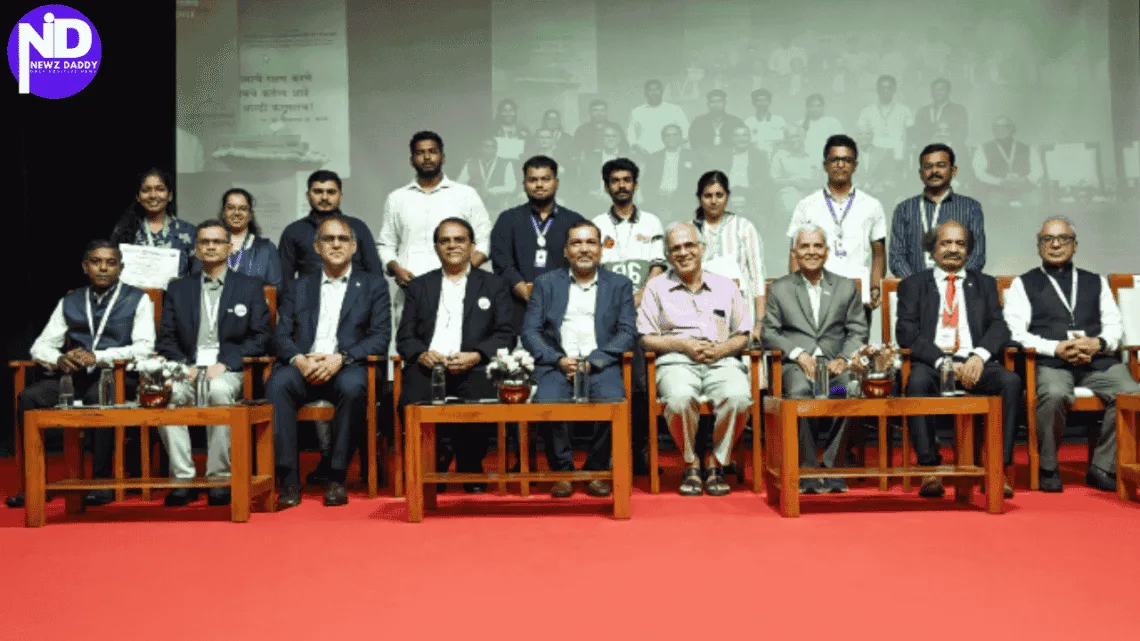NSRTC 2025 Ignites Ideas That Can Change the World
Newz Daddy Educational Update
With inspiring insights and a call for international cooperation in AI, sustainability, and science-driven policy, MIT-WPU’s NSRTC 2025 comes to a successful conclusion.
Over 70 of India’s most renowned scientists, researchers, and thought leaders, including 36 scientists who have received the Padma and Shanti Swarup Bhatnagar Awards, came together at the 2nd National Scientists’ Round Table Conference (NSRTC 2025), which was successfully hosted by MIT World Peace University (MIT-WPU) in Pune. A rich environment for interdisciplinary cooperation, intellectual interchange, and policy-making discussion was established by the three-day conference.
Four revolutionary themes that were closely related to India’s developmental goals were the focus of the conference: artificial intelligence, advanced materials and processing, digital transformation and sustainability, and healthcare, pharma, and biotechnology. Thought sessions examining the “Premise of Nobel Prize–Inspired Research” and the intersection of science and spirituality enhanced these conversations even further.
Discussions on how AI intersects with astronomy, quantum science, encryption, and education were included in the Artificial Intelligence track. Experts examined AI’s potential for 6G networks and multilingual applications, as well as whether it could lead to the development of novel scientific theories.
Self-reliance through nanotechnology, solar energy, 2D materials, and metal circularity was emphasised in the Advanced Materials and Processing workshops. India’s drive for energy sustainability was highlighted by noteworthy studies on “Black Gold” nanomaterials for CO₂ reduction and requests to switch from lithium-ion batteries.
Global experts examined AI-driven drug development, pandemic preparedness using the One Health strategy, and lifestyle approaches to reverse Type 2 diabetes in the Healthcare, Pharma, and Biotechnology theme. Brain drain, biomaterials, regenerative medicine, and the diagnosis of diseases, including HIV, TB, and cancer, were all discussed.
Discussions on green chemistry, advances in chemical production, and India’s nuclear energy potential were covered in sessions under the heading of “Digital Transformation and Sustainability.” The relationship between energy usage and the Human Development Index (HDI) and agricultural resilience through salt-tolerant rice was also discussed.
The significance of having a philosophical and ethical foundation in scientific endeavours was also emphasised by the conference. In a joint reflection, Prof. Ashutosh Sharma, former secretary of the Department of Science and Technology (DST), Government of India, and Dr. Vishwanath D. Karad, founder of the MIT Group of Institutions, highlighted the connection between science and spirituality and encouraged students to use science to change society.
Professor G.D. Yadav, Emeritus Professor and Former Vice-Chancellor, ICT, Mumbai; Dr. Shekhar Mande, Former Director General, CSIR, New Delhi; Prof. Sagar Mitra, IIT Bombay; Prof. Ashok Joshi, Founding Director, Microlin Inc., USA; and the conference convenors, Drs. Bharat Kale, Anup Kale, and Siddharth Chakrabarti were among the distinguished guests who graced the event’s valedictory ceremony.
Research is the cornerstone of national growth, according to Dr. Rahul V. Karad, Executive President of MIT-WPU, who spoke at the conference. Through NSRTC, the institution hopes to encourage young people to think creatively and pursue meaningful professions in science and innovation. He added that it was heartening to see more than 600 youngsters actively interacting with more than 100 of the nation’s top scientists.
The occasion was a significant step in creating a scientific community that is prepared for the future and may influence India’s ascent to prominence in innovation and knowledge worldwide. The participants’ enthusiasm, ideas, and collaborations have created a foundation for long-lasting effects.
Must Read:
“MIT‑WPU Lights the Way for India’s First Private Battery Lab






